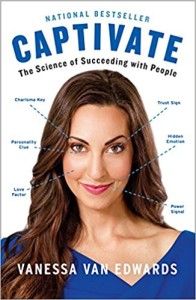Hi Reuben Swartz here your host and chief nerd welcome to Sales for Nerds. I try to distill years of struggling with sales and marketing so you can learn the easy way. Plus get the scoop from other folks have accidentally ended up in sales and learned that it doesn’t have to suck. Now, as a software person who hated conventional CRMs, I ended up creating my own for folks like me in professional services who would rather be doing client work than sales and marketing.
It’s got a whole new take on lead magnets to the way to think about conversations and referrals, proposal, automation, e-signature. And if you’re the only one in your company selling or maybe the only person in your company, it’s got features so you don’t feel so alone. Start your free trial at Mimiran Dotcom. That’s M-I-M-I-R-A-N dot com and even if you’re not looking for a CRM, you’ll find proposal templates, checklists and more to help you grow your business.
Now let’s get to it. Today I’m super excited to have with me Russell Thackeray, who is the managing director of QED Organizational Development. There are a organizational consulting firm and I’m sure Russell will correct me and straighten me out on that.
He is also the host of the Resilience Unraveled podcast, and he started as a professional musician. And now I have yet to have a guest come on here and say, All my life I dreamt of becoming a sales superstar and sales trainer. I everyone’s got an interesting path to get there, but I don’t think I’ve ever had anyone start off via the professional musician route. So, Russell, welcome to Sales for Nerds.
I’m delighted to be here as another as another note. It’s good to be in your company.
All right. Very good. Well, speaking of company, Russell is a teetotaller, so he is literally going to be drinking tea. I on the other hand, I’m not. And so I’ve got this Monty Antico Italian wine, which is a blend of Sangiovese, Malo and Cabernet Sauvignon from Tuscany. And it is very nice. I have a little small glass here because I have to go somewhere after this. But anyway, cheers Russell and thanks for joining me.
Well, I’m having a couple of very exotic Lady Jane which is very, very enjoyable.It’s a nice blend of real strong tea in the sort of earl grey. So it’s it’s one of the things I didn’t I used to drink quite copiously many, many years ago. It’s actually one of the joys of being a professional musician. You spend far too much of your time quite liberated, certainly in as I used to do it. So there came a point in my life I decided to make a big change and I cut out for things from my diet, one of which was alcohol.
What were the other three?
The other three, what was bread? OK, potatoes and cheese.
So OK, so I get the alcohol, I get the bread and potatoes. Why cheese?
Because they’re all trigger foods for me and and I think in life and behaviours, you know, the way behaviour works as a psychologist, you know, they have a trigger and a response and the behaviour and what I should say and cheese, the cheese, the trigger food for me. And many years ago, I remember going on the Atkins diet and the Atkins diet was very much about it. You had some sugar and they used to say you can eat unlimited amounts of cheese.
And my wife at the time used to say I was reincarnated from being a mouse because actually I used to drink a pound. I used to eat a pound of cheese for breakfast because I love cheese so much.
Ah, OK. This is starting to make sense.
I put on three quarters of a stone on the sides and so I went through a bit of a big life change moments where at that time and I lost actually twelve stone.
Now for American people a stone is fourteen pounds is that right.
That’s it– twelve times fourteen whatever that is. You do the math. I can’t, I can’t do the alcohol.
That’s like one hundred and sixty, one hundred and seventy pounds. Yeah that’s a lot.
It was a lot and I could afford to lose it so. And actually just by losing those four things and it’s really I learned something quite interesting about myself and it’s interesting to psychologist because you spend a lot of time talking to people about self-awareness and I think you’ll talk a lot about this one, about sales, productivity and how we think about our own performance. I would eat sort of really good feedback loops to really sort of develop all practice salespeople. And the thing that I certainly discovered when I was 14 years ago, I can cook things out, but I can’t do things in moderation.
Mm. And and it’s been something for me that I tend to have this bingeing type thing. So when I’m selling off sales binges and when I’m, when I’m not selling, I’m selling drugs, but I find I find it very hard as a person, it’s sold in my personality to be able to really do things a little and often.
So for me today, it’s it’s all about substance. So I’ve been finished. I recently called the 800 calorie diet day. That’s sort of a day. And it’s tremendous really, really well for me, because, of course, it’s all about cutting things out. And, you know, when you think about the way we incentivise people, salespeople, other people, we often talk about this idea of rewards and punishments. And and it’s actually really important to us when we motivate people to think about this idea that, yes, we’ve got an incentive.
Nice people all the time, but losing something you already have is a very powerful psychological factor in motivating people because to have this thing called sucralose bias and they often hate this idea of losing something. Right. And what tends to happen is we’re maybe running a sales force and say we want to incentivize them so that they don’t do this. They won’t get that bonus. What we very rarely say is we don’t do this. You lose something you already cut.
Years ago, I used to work for a sales director and a couple of them, and he used to put the low performing sales people work for rental cars.
And they used to the lowest performing sales people in Renaults Fours because the humidity is so terrible that there was a big disincentive for coming last. And I think sometimes we if we get on a very sort of cocky way of thinking about incentivisation, we forget that as well. So, I mean, it’s very interesting because actually I learned some of these things from being a musician. So go back to that that point. You’re absolutely right. There are very few musicians in the world who’ve gone on to become salespeople, but those that have often been quite successful.
Well, so I didn’t mean to dive into diets and whatnot, but now I’m intrigued. How long are you supposed to be able to sustain the eight hundred calorie day diet?
As long as you want. As long as you want. You don’t have any loss of energy. You’re fine.
Much better. In fact, in fact, it’s one of it’s one of the principles of aging that you’ll see just about everywhere. If you want to increase your your healthy longevity, it’s about a third less than you currently do. Simple as that.
Well, that makes a lot of sense. I think most Americans are not starting at twelve hundred and trying to cut 800.
No, most of us starting at six or seven thousand and then being agreived as we’re going to 5. I mean, and don’t get me wrong, I love America.
And one of my greatest places is the Cheesecake Factory, because I’m, I’m a classy guy and we Brits love to go over there and we’d love to get an I look just to order a a sweet potato fries. And 73 people come out bearing the weight of this huge trough of sweet potato fries to which I sort through my face into and start guzzling away because, you know, you guys know how to do portion sizes over there.
Well, in Texas, I mean, America is one place, but Texas, we take it to a whole level, even beyond the American standard.
Well, I’m going to Texas. Yes, I’ll be going to Dallas. That’s Texas next. And I’m looking forward to hearing so much about Texas. And and I remember I will go to Alaska and and and then looking at someone and saying, oh, Texas. Such a cute state. Right.
People probably have this image of you of as this like crazy punk rocker who was drunk and eating cheese all the time. But that’s not actually the kind of professional musician you were, right?
Well, one of those things was correct. No, I was actually a classical musician. So I started I played the viola, which is which, for those of you don’t know much about, music sits between a violin and a cello in terms of size. And viola players notoriously become very entrepreneurial because we thought it’s sort of a standard joke in an orchestra that to be able to sort of hide in the middle don’t do much. And every now and then they have a solo and everybody freezes over because of experience.
And a lot of people who are musicians viola players, become very entrepreneurial and become orchestral managers often become one of my great friends who is a world record producer. And Allen runs a record label. But my background was classical music and I worked my way through the English UK system and became a freelance musician. And I worked in the big symphony orchestras. I was a concession music and I worked in some of the Western shows. It was my to my great persistence.
I did Les Misérables three three three hundred eighty four times a year.
And and that led to a real appreciation of the condition of musicians, which is that I’d be I’d be doing like a film music session. And a film is a very highly paid and you could actually expect to see anything magically one long note for three hours a night playing these phenomenal solos that some film, music composer etc put together.
And basically you’d be on your own and very exposed. And then in the evening I’d go to the pit and they’re miserable. But it lets the phrase that musicians are bored stiff or scared stiff, OK?
And and actually it’s it’s really been very interesting for me during the course of like two presentations, sales presentations and realizing that actually that history of performance, history of using music as a communication method has actually served me in great stead through the rest of my life, because actually I have no fears of standing up, talking to lots of people, and I’m used to communicating without speaking.
Right.
And actually, that stands you, and that’s really, really powerful stuff.
And I definitely want to get back to that because that sounds much more important to the content of this podcast than what I’m about to ask you. But I want to know why the viola players are so entrepreneurial, is it because they don’t have to practice as much as the violinist and the cellist or what’s going on?
Well, it is actually physically… I’m going to break the viola players’ code. There’s a lot of viola jokes, you know, the butt of the orchestra and everyone tells jokes. But actually, just generally that viola part time is taxing in the middle range.
You have to show up in the and the first violins and the other very melodic. The cellists and the bass players have all the bottom bits and then the builders are sort of, you know, sort of doing the knitting in the middle anyway. And of course, it’s very lovely. We pride ourselves on being different. I mean, if you’ve ever if you ever watched an orchestra play like Johann Strauss Evening, that violinists are doing wonderful things with the flutes and the violas are going bup, bup, bup, bup, bup, bup.
You know, you learn to be a concert musician. You spend the rest of your life effectively shoveling concrete into a hole.
And for a lot of this, I mean, recently I was in the West End and I bumped into some colleagues of mine who were doing Phantom of the Opera, and I’d been running a big training course for a big scientific organisation. And then they walked in this this sort of old wizened guy with all gray hair in front of that. I looked and said to him, I looked at me. I said, Russell, I mean, you know, I’ve got gray hair as well, but I wasn’t.
And he’s been doing that show for twenty seven years.
OK, let me show it shows a week.
You decided at some point I’ve had enough of this or I need to do something else. How did that whole process start and how did you kind of start down the path of getting into sales?
Right. Brilliant question. So first off, whilst I was still playing, I got into the business side of music. So I started running wedding music. I used to put together string trios, quartets, ensembles, and I used to put adverts in the paper. And I used to book musicians for wedding music. I used to handle enquiries and sometimes I used to do some music. I work for a guy called Rowan Atkinson. I don’t know if you have that here and did all this sort of session music and suchlike and worked for his composer.
How it got all that. We still all of Rowan’s music and I used to fix the orchestra to administration, call people up, persuade them to do gigs for me and, you know, sometimes for half the money would like to do. And and I didn’t realise that this is all sales, but I didn’t really didn’t know that. I just thought I was booking orchestral musicians the gigs. And I decided to give up music during after the les miserables experience and I sorted what it is. I wound it down. So there was a declining curve away from music. Was that built up my work in the commercial world? What I did is I went to at the time a recruitment agency. And what they said to me was, hey, what do you do? And I describe what I did and said, all right, so it’s just like pulling lots of people together to get them to do stuff. I said, yes, that’s sort of what it’s like.They said, you’d make a great recruitment agency because that’s about getting people to come and do jobs, but they’re just secretarial jobs instead of musicians jobs. And I said, yeah, that sounds great. I said, well, what we’ll do is we’ll test you up. First of all, you said you are to one of our clients, which I always think is great recruitment. You know, we do what we were doing, the training. So what do we send you in to try and get paid for being trained?
Right. And off I went and I went to this company, Renault, and I pitched up on the first day and said, hey, hey, what we’re going to do is a great experience. You’re going to love this. You’re going to love this. I’m sort of getting fixed with the beady eyes, it’s unlikely. But go on. What do you got for me, somebody like you to sell some vans over the phone? And I said, how do you mean, sell a van over the phone? And they said, they want to get on the phone to everybody that’s French and them. I said, well, you don’t want to. About this one. About you finished, I suppose, to what training are you going to give me? They said just have a go.
Now, do you speak French?
None at all. But I was it’s all based in Britain. So it was all ringing in French companies, in French restaurants. And this is one of the things that had to do, I had to figure out, is that the French embassies, there are lots of French companies, especially in London and French florists. And so what I do is I just sort of think about French companies. I give them a ring and say, hey, you’re French. I work for a French company and we have to remember about the French. Is that quite how can I put it clique-y? That’s how we put it in the press and in our world. And so they tend to buy French.
They’re very loyal to their own brands. And so I used to ring them up and say, hey, fancy buying a van? And, you know, I sold all these vans and at the end of three weeks, the sales rep came back to me and said, You’ve sold how many? And I said this many and he said, well, no one’s ever sold one before. How did you do? Is it because it’s so hard? I said, Well, I wish you hadn’t told me it was hard because I thought it was really easy.
And and that was the beginning of this actual journey into mindset for me. When people tell you something is something that we need to start to limit your ability to actually do things for yourself. And I went back to the recruitment agency and I started to work on their sales desks very quickly. And I was selling something people. So basically, people would come in on a job, first of all, have to find the jobs for them that I have to interview, then I have to get an interview.
And it was hard sales on the phone, 50 calls a day of ringing people up and saying, hey, you got the job. They got jobs, jobs. People slam the phone down at the shower. You tell me where to go. And then and then you ring one day then suddenly bosz that say, yeah, we’ve got a job and then you go and pick up the job and then you find the people and you put the job together to get it in some place.
And what I quickly learned is that if you do 50 calls a day, you pretty well have a sales funnel. That means let go get a certain number of appointments, a certain number of jobs, a certain number of interviews. And actually you have to get over yourself and just get on with it. And I became really good at telling business. And I think you and I were chatting about this recently. We were I was talking to a formal business to business sales organization to say we need to do some prospecting.
And I said, well, don’t use your face to face sales people to do tons. That’s a different skill. You know, it’s a different skill. A lot of face to face. People are frightened of doing telesales. I don’t like it seem to be beneath them because they need that. They need the visual piece. They need to look into people’s eyes and sort of, you know, show off. And they don’t realize that telesales person works in a different sort of way.
And so I started referring to sales 50 calls a day, Boschert Bash, Bosh and all that sort of stuff, you know, and then it became because obviously I was good at sales. The first thing I was then happened to me was I was promoted. So that’s it.
So hold on. Let’s not skip over too many things here because you’re telling the story. You’re like, well, of course, I just went and I did it and I was good and it was fine. But I’m imagining most people listening or saying, well, what the heck were you doing that was different than all the other people who supposedly were good at sales but weren’t actually selling as much as you. What were you doing?
Two things. One which is I didn’t know was difficult.
All right.
OK, that’s really important because once people start get into this attritional mindset about sales rather than just think and it’s communication, I’m going to ring someone up. I’m going to talk to them today. And the what I’m going to talk about is this I’m actually I believed in the product. I know what it’s all about. And actually, I was very well incentivized and I was young and stupid. I would say I was young, handsome and stupid. You know, I certainly was young and on the point of that is actually sometimes we over engineer sales.
We are being stupid is useful, sometimes not knowing too much, not not not having too much empathy, not thinking or disturbing someone’s day or I really shouldn’t do that. Do I have the right to make this person is what I’ve got to say compelling enough. This is ring them up. Hey, got jobs. Right?
Because actually I didn’t know enough. And I think sometimes we’re overburdened by too much knowledge. We overthink things. We become almost too often the body isn’t that we become too professionalized. And especially if you’re a nerd, you’re more authentic as a salesperson. Just ringing up and saying, hey, you know, I’m an architect. We’ve done some brilliant designs. Would you be interested in a chat? And sometimes that comes over as being so much less polished, so much so much less processed than some professional.
So that’s interesting. I was chatting to someone today when in fact, I’m starting a new therapy center in a local area next to us. And as part of that, we’re stocking CBD. The sales guy was on the line to me today and he was a man that knew a lot about CBD and his knowledge far exceeded my interest. And so most of the time I was sitting there gritting my teeth, just saying, for goodness sake, stop talking and just answer the questions I’ve got.
But no, he was over burdened with knowledge and he was going to tell me everything he knew. I think we have to recognize the salespeople. The thing that you have to do most of all is get in and get out and be slick, be really efficient. Don’t worry too much about some of the things that we’ve been trained to worry too much about. Sometimes not knowing everything is a real yes. I used to work with sales guys said before I make a sales call, before I make a sales call, I need to research the company.
I need to research the person and check them on LinkedIn. I need to do this. I need to do that. So I said how many sales call do you do in a day? He said 4. So how’s that working for you that you said up to the weeks? Now I’ve got one appointment and I said that person is than forty in the day.
I mean, you know, sometimes we really, really overcomplicate overcomplicated, very, very simple process. And I’m talking particularly about business, the business sales here.
I wouldn’t know anything about it. Yeah. If you tell me I believe you. But I’ve never had that experience ever. So all kidding aside, what was the second thing that you were doing differently?
Well, they were the two things. One, which is not knowing too much. And the second OK, second one was just being authentic.
Okay, being authentic. I didn’t know what that was the second. Yeah.
And part of that was because I haven’t had any training and so I was just communicating. This is where being a musician it helped me because actually the first thing you do as a musician, you think about what the audience is interested in and you also think about the art you’re creating and the message that you have to get through. And you’re sitting there thinking, what’s the best way to take this art and put it into a format that an audience would be really interested to really appreciate.
So you become the translator of the message to the ear. And I think that’s what you’re doing. As you said, we think more carefully about how do we structure this message to make it really fascinating for someone to listen to rather than saying, hey, is the feature here is the benefits, blah, blah, blah, blah.
And you get stuck into a sort of a process. You actually learn to be much more skilled at listening to what the person saying, listening to what’s important to them and actually, you know, finessing your message. I’m a great believer. And like sales mavericks for companies up to a certain size, those people are really great. Once you get above a certain size, says Mavericks, obviously you need to be prudent. But this idea of having people who aren’t quite so bound by the process can be quite, quite good for you sometimes.
OK, how do you know if you’re at a place where you need to prune those people out or not?
I think once you get to a certain size, organizations have to start minimizing the risk they get from the salespeople when when you’re small and if you’re starting off in your new business. So, for example, I’ll be bringing up all the businesses now and my local area saying, hey, we stop this therapy center and we got people who are stressed, are suffering from burnout. What’s going to happen is going to lose their lives to them. And if actually it’s people that know who you are and slam the phone numbers really matter because I’ve got nothing to worry about.
But I’ve got a colleague of mine who only says one deal a year, but it’s so huge that actually can’t afford to get that one deal wrong because that’s his only deal I get. So actually he has to follow the process. He has to be much more structured, has to know the ins and outs of lobbying, deal making deals, structuring value proposition, all that complex stuff because he’s running a huge six month long procurement process. Whereas I was just ringing up people and saying, hey, you got this.
And when they put the phone down, they just go, who is that? And then they forget about me. They can’t afford to forget about him. So an organization, when it reduces, when it becomes big enough and we have to minimize the risk themselves, needs to have much more process in it. The trouble is that some organizations strip away the ability for people to use their common sense in a sales process. I was working quite recently and a large motor dealership and they were with every experience and have great results when they follow their own process.
But they’re not allowed to follow their own process. They have to follow the process which they are at which the the dealer brand has actually said is important. And the dealer brand has a number of staging post it has to measure and it’s process, one of which is having a test drive now. So in other words, you have to a point that you have to create where someone comes in. I mean, fashion is that in today’s world, then you have to have a test drive.
So how people are having to do this, even when sometimes they’re arriving and they know more than the salesperson and they’ve already got the same vehicle, they just want the new version and think about the know. They have to have the they have to have the test drive because that’s the way we’ve created the process. Now, the process has been created to drive out innovation. It’s been created to drive out anyone being able to think creatively down the process.
And I think, therefore, we end up with salespeople who are processing their customers, especially in retail. And I think what ends up happening is people stop, stop using their imagination to think much more about being incentivized and you lose up, you lose some pride and scale in terms of being able to sit down. And so I’ve got one who are really I that what really matter to me. You don’t want the easy sell sometimes. Sometimes you want what you want is a real it’s like fishing.
Isn’t that you want the one that really fights on the end of the line. You know, you really have to work out. I mean, some some of the deals I’ve often wondered have been the most difficult thing. It’s not always been the best of the biggest deals with it being some of the most difficult deals to hook. Had a lot of meetings. And you’ve got to go backwards and forwards and you’ve had to lobby different people. You have to presell like mad, and you’ve got to really finesse something and you go do Taster’s and you’ve got to do all sorts of things.
At the end of it. You get can the deal. Yes, it’s really great. And which you then I wish it wasn’t that deal actually ended.
Well, it’s like anything that you do right. That when it’s really hard and you put a lot of effort into it, it’s satisfying when you achieve whatever it is, whether it’s a sale or playing a difficult piece or something like that. And so you’ve now got this situation where you’ve figured out that, well, you didn’t figure out. You didn’t know it was supposed to be hard. You’re just yourself. You’re just trying to be helpful. You’re willing to to do what it takes.
What happens next? How do you decide to go start your own company?
Well, before that, I became a sales manager, a regional sales, sales and marketing director, and, you know, went into that sort of side of things, both for large and small companies, but then went out the sales line and went into becoming a CEO. It worked as an operations. And what was fascinating working in operations was you realize how binary and simple sales is, isn’t it funny? So what happened? And this is the thing that.
Some Nerds forget sometimes that if you’re an architect or an engineer or a journalist or something, the levers for incentivizing people to do what you want aren’t simple. If you work in accounts and you’re running an accounting team, you can’t say, well, I’m going to if you don’t do it, I’m going to take your bonus away because these people aren’t getting a bonus. So you’ve got to learn to manage and deal with people and learn to communicate with them in different sorts of ways.
And I think actually, if you want to be a sales manager, sales director, it’s really good for you to go out to the sales line. So when you go back and you realize how lucky and blessed you are, because it’s actually quite easy compared to some other bits. Now, I’m saying that between you and hopefully you know what you’re saying, but everything is true.
Don’t worry, no one listens to the show.
But I heard a rumor, but I decided to start my own business, having worked in a small company and I haven’t been a musician. Yes, of course. I’ve worked on my own. I’ve been a freelance musician. I haven’t been part of a one orchestra. I’ve been I’ve been going around and selling my west. And so it was a natural thing to say to myself, well, OK, let let me do something. And then and during the sales and marketing sort of ventures that had become a psychologist because I was interested in really having a view of what was going on.
And I joined a management consultancy and worked for them and then came out to them and started my own training company and what I did.
So you became a psychologist. Let’s go into that for just a second. What exactly do you mean by I became a psychologist? That’s a very interesting thing to just sort of mention in passing.
Yeah, I’m one of those people who like studying and I have a number of different masters degrees and doctorates and such like and and study the law to learn all the sort of I miss part of sales. You have to understand about behavior, motives, intention, influencing, negotiating, all those different things. And actually it’s just communication. I learned and help, first of all, became a master practitioner, got interested and then went on and did degrees and such like and qualifications and psychology at the time, what was called behavioral psychology and neuroscience and suchlike as well.
And so just to be clear, you’re talking about you went off and studied psychology, meaning you got a Ph.D. in psychology.
I’ve got a I’ve got a different sort. I’ve got different qualifications in psychology. I have many. OK, I know this sounds weird, but I’m one of those people that’s very restless and very busy most of the time. So last year I became a qualified hypnotherapist for fun. OK, so I do collect qualifications. I do collect quite interesting things. So I’m I’m a traditional psychologist. I’ve also been energy psychology as well, which is real fun and games, very interesting, exciting things.
What does that even mean?
What does that even mean exactly? It’s it’s what we call the Woo Woo and psychology, which is reading people’s auras and emotional freedom techniques and learning to tap your face and are fully aware. Honestly, I’ve done all sorts because I’m completely open to learning and doing things differently all the time.
OK, I just want to make sure that I understood what it meant by I went off and studied psychology. Like you didn’t just go take a course for a couple of weeks, you went all out.
Oh yeah, yeah, yeah, absolutely. And you know, I was working full time and studying. And when I when I did my first MBA, I was working in a full time job and to ourselves time. And I was studying in my spare time and and did my MBA. And that was my first MBA. And I have three master’s qualifications now. And, you know, I do them in my spare time because actually, if you enjoy what you do, it’s it’s not it’s not a hard thing to do, really.
And I like the academic world because actually it really teaches you to think in a different way. And your kids will understand that because they’re already engineers, they’re already software people. They’re brilliant at coding. They understand that learning is a natural part of what we do. And that just hadn’t that it’s just another channel of learning and that’s what it is really now.
Didn’t mean to digress there. I want to make sure I got clarity on that point that you became a psychologist and then carry on…
So so that I started off my own firm of training and development.
We go with business. We were working with large organisations, selling management, leadership training, pretty large pieces of work. Mr Williams with trade shows going into shows, standing on an exhibition stand when it’s tough, getting sending out leads, sending out emails, getting leads, coming in, doing cold, cold calling, having a team, doing it’s different things for us. And I used to do the sales closing and we used to win all sorts of different types of training development.
And my job was to be quite innovative and to come up with ideas when companies didn’t know what they wanted. So sometimes I’d say we want some sort leadership training, but we want something that no one ever seen before. I said, OK, great, so let’s come up with that. So we’ll do something that no one’s ever seen before. And we used to do work like that. So a lot of tailoring. And actually what I realised after a while as I was doing what we call the consultants Excel, because actually we were inventing things as we went along for large scale clients who may ostensibly seem to want one thing, but what they really wanted something else.
And you had to become quite shrewd to be able to do that sort of large B2B corporate sale. OK, and that was good fun, and we developed all sorts of new innovative products to start with the venture capital companies, private equity houses, and we started doing the assessment of what we call human capital. In other words, what what is your sales? What is your company worth in terms of the people that you employ? Because if you think about those assets and people are your assets and a lot of private equity houses that go into organizations, that they acquire them and they just sack the top 50 people.
And we were saying, well, you know what? That seems a little awful waste. Why don’t we want to make more of those people? Why don’t you create a culture that’s more about, you know, really sort of getting to grips with what’s going on here. And we sold the company after a while.
And then I came up my own and formed the organization department really for fun, because you sometimes get to that stage where you’ve got enough money, you’ve done what you wanted to achieve, and you sit there on the beach one day thinking, this is great, and then a month later divorced and then you’ve got no money and you can’t afford to sit on the beach anymore. OK, you have to start again from scratch. And I think one of the one of the I think one of the key things that Warren Buffett says, rule number one, to not being poor, never get divorced.
And I think it’s something that we have to do really good for me. It was good for me in later life to be starting again from scratch with a small company and certainly winning more work, harvesting clients before winning new pieces of business and innovating come up with new products, doing marketing campaigns, just getting out there. But I’ve become more of the the nerd again. And I was doing some of the delivery now, not just the selling, and I was working with the salespeople.
So it was now about recruiting and hiring and managing salespeople as well as doing it myself. And what I’ve noticed about myself, about as I’ve got older, I’m much better at the big final sales, but I can’t tell you sales anymore because I’ve got too much empathy now, because I’ve done all this professional development and I worry too much about what a person might be doing and thinking on the other end of the line. And it’s and it’s really fascinating bringing people in who’ve never done before and saying, you know, that phone is a database, just work your way through it and they pick it up without fear.
And I find that really I look at myself and think, hmm, that’s interesting. I wonder what it is. What is it about knowing too much, having too much empathy that gets in the way of your ability to be good at sales? Because when you watch and I think that’s where I go, interest and resilience really its ability to know how to focus and to drive negative thoughts out of your head, because a lot of times with salespeople that dealing with rejection and if you have too much empathy or emoting too much, you’re putting yourself in your customers shoes too much.
You can get yourself a bit damaged if you’re not careful and then you lose your ability to bounce back. And then, I mean, a lot of salespeople who burned out. And of course, now as a psychologist, doctor of all these sorts of things that I do, I’m working with those people who are burning out. And, you know, I’ve got some clients who are Silicon Valley people are working 100 hour weeks and being surprised that the burn out because they’re addicted to work.
But now you sseeay I’ve got someone else doing my sales for me and that’s quite lovely lately.
Well, it’s funny because you answered the question I was about to ask you, which is now that you know all this stuff, how do you sell if you lost your one of your big advantages? And it’s interesting that even as somebody who you recognize, you have the self-awareness to understand what’s going on, you can’t fix that. Right. It’s too late. You have the empathy. You can’t undo that.
I think I think what you do is you you play to your strengths as something. I learned the personal development many, many years ago. Play to your strengths. I have worked in organizations with brilliant salespeople.
Brilliant, truly brilliant. But the processes that have to do their own admin. And then you end up with that very average salespeople who are spending most of their time doing admin. And what you have to do is you have to think about in sales like every part of your life, do what you’re brilliant. Now, when you start a new business, often you’re the only person in it. You can’t tell what you’re brilliant because you’re pretty well. You’ve got to do everything.
And so you learn things about yourself that you didn’t know.
You knew you could be suddenly discover your brilliance is something you never knew. You’re brilliant. That doesn’t mean that you want to do it, but you find skill. And so you didn’t know you had. And what we’ll also find is that you may have been a nerd and you’ve learned to communicate in that particular way to other the nerds. And actually we need to get rid of sometimes just need to stop calling it sales, because it’s the sort of for some people a negative connotation of calling itself.
What we have to do is just call it marketing. What we have to do is call it business development, or we have to do is calling it revenue generation. So sometimes the word sales just has a horrible thing. But for me, know your strengths, play to your strengths. And if you are truly brilliant, sometimes it’s the job of the organization to to work around you if you’re that good in your job, especially when it’s a small organization.
Again, as you get bigger, sometimes you have to drive up that level of innovation, but into. You do then, you know, I allow those people to do what they did, you know, for me, a great and small company, if you hire a good salesperson, they’re like a brilliant soloist, a musician that’s a soloist. They come in, they sprinkled pixie dust all directions. You can’t quite see how they’re doing it, but it’s working and that’s what matters.
Yeah. And I think you said something really important about just sometimes people get really hung up on the word sales. I know that happened to me and I turned it into help instead of sell. And suddenly that was something that I felt that I was equipped to do and eager to do and happy to do and could do authentically.
That’s a brilliant point. I work for someone else who was who it but who was was a journalist and set up his own firm, had quite a big meet, had quite a big ego, and we described it this way. And he said that they have a need, you have a solution. So you owe it to them to tell them your solution, because once they hear your solution, there’s no way they want to hear anybody else’s. And that was enough for him to say, oh, yeah, get that’s not that’s not sales.
That’s just showing off. I said will show up on the phone and make it happen. And it’s also going up through the sales process from start to finish. It’s OK to excel at some bits and not to others. You know, I remember hiring years ago and we were a small company and we interviewed a guy and he sat in front of us and he was a real big ticket sales guy. And he said, if you hire me, you’ll have to hire telesales person because I’m not Intellisense.
And I sat and I was young and naive and stupid, which is not good as a manager in my case, … Manager. And I said to him, that’s just ridiculous. I’m not going to do that. And I probably passed over one of the best salespeople in our industry because I was stupid and didn’t realize what I know today, which is he was right and he shouldn’t have done his homework because the value he brought was sitting in front of clients.
Absolutely knocking the socks off. And the last thing he should have been doing was admin or telesales. And and I think and I think sometimes when we designed organized stations, we we sometimes forget especially one the small. But it’s OK to be slightly unusually shaped because actually you’ve got someone who’s super, super at something, you know, and therefore you need to sort of wrap something around them to minimize the weaknesses in different areas. It’s not a popular view, but it just works all the time when it’s becoming more popular.
I think and I have to credit, Aaron Ross has been on the show a couple of times, one of the authors of Predictable Revenue. And his big thing is basically split the sales process up into different chunks and have different people do different parts of it based on their strengths. Exactly. Like you’re saying, there’s a different skill set that you need for the initial telesales versus the final presentation. Why are you trying to have one person master both of them?
That’s not going to work. And a lot of cases and it’s kind of like, you know, we we wouldn’t expect one basketball player to play center and point guard at the same time or whatever the proper analogy is, we wouldn’t expect them to be striker and goalkeeper at the same time, even though they’re both football players or basketball players or whatever. But we kind of lump all these salespeople together and expect that they’re all going to have exactly the same skills and outputs.
That’s such a great analogy. And and what’s interesting is from a sense that I can only talk about what we what we call football here, you call it soccer and stuff, but you’ll also find that your center forward in one team hub and the center board and another team that both sent forwards. But they’ll do the job differently for the both forwards and they’ll be different.
And I think that’s another thing as well, that we we sometimes we we drive and we drive out the individuality from selling.
And what I notice about really great salespeople, there’s almost a little quirk. There’s also a little bit of personality that’s a little bit of pride that they bring to the sale. You know, that little bit of diamond in the rough, that’s that that’s their thing that they bring to it. And that’s something to be encouraged. I think, you know, if you’re a sports person, that special turn, special pass, you make all that special quirk or not a celebration because that’s not great.
But the piece you do that enables that that thing that you do. And I think it’s to say, you know, you’ll find salespeople who make up great turns of phrase. You have some people who are brilliant at the way they can manipulate, sell product so they can they can actually demonstrate things that really bring things to life in a different sort of way.
I remember doing the presentation quite recently to people and I say that all actually bored, rigid, bored, senseless, because they had a whole day of pictures from other training companies. So I walked in and said, you look really bored. And they said, we are. I said, oh, well, what what do we talk about then? And said, well, tell us how you know. Tell us what you’re about to ask. How many slides have you seen today and they said “loads”.
Let’s not go inyo slides– and you see what I mean. That’s something I can do because I was a performer. That’s my bit. Not everybody can do that. Some people are much better at having a brilliant slide deck and working in a really innovative way.
Very strong. It’s very logical, very organized, that’s not my skill, so I find I always go on last if I possibly can, because I know they’ll be bored and tired. So I could be different because actually, what’s the point of me going in the middle of the day?
Because I’d be competing with the highly efficient engines and I’ll just look like a shambolic mess. And so so if you know you’re a certain thing and that’s your superpower, then you have to contort the context to make your superpower come to life. Sometimes I don’t think think enough about what you know. We don’t manage the context around your sales pitch.
if I’m understanding this correctly, part of sales and marketing is sorting the market so that you’re talking to the people who are most likely to buy. You don’t just want to hammer everybody over the head and tell the English people to buy a Renault. You call the French people and tell them to buy a Renault. In the same token, we want to put our salespeople in the right context so that they can be successful. And someone like the guy you passed over could be a great closer, terrible at telesales. Someone else might be the opposite. We want to make sure that we’ve put the right people in the right place so they can be successful for us.
Someone much wiser than me I used to work for– used to say that the skill in sales. No, no, you don’t want to sell to rather than who you do want to sell it. And because of that screening out process is really important. So you’re not wasting your time dealing with people that you don’t or can’t or shouldn’t be selling to. And sometimes they have the easiest sales. And that’s the challenge. Isn’t that?
Yeah, that’s a great point. It’s something I always ask people because whenever I asked folks whether they’re a client of mine or they’re just somebody, I meet a well, you know, who are you looking for in the definition they give is almost always too broad initially. And so I said, well, how do I know if they meet that high level criteria? Is there something in there that’s going to show that they’re actually going to waste your time?
And then usually there is something very specific. They say, oh, yeah, you know, actually if whatever, then they’re going to end up doing it themselves or they’re going to end up going with this competitor. We always fight. I’m like, well, why didn’t you mention that up front? Right. It wasn’t really part of their thinking until pressed on it. We don’t we don’t like to think that we’re contracting our market, which I suppose is another psychological thing that you probably have many things to say about the.
I think I think I think that’s really true to what you’re saying there. And I think we don’t manage our context enough. We don’t figure out who we want to sell to. And and we’ve got to think both parts. We’ve also got to think about them. We have to realize that sometimes our agenda is more important to us than it is to them. So actually, how do we make our agenda more important to them than is so that, you know, they’re foaming at the mouth with excitement to talk to us rather than the way we do that?
Well, you see, that’s important. And the trouble you say, and I think sometimes we forget that sales and marketing are sisters in the same family and we see yeah, really interesting. When you look at organizations, you have this measure called return on sales and sales. People were saying it for me, the only job marketing is to generate leads and so on. And then you measure marketing on leads, not not on sales, because it’s the job of sales people to convert.
And while the sales people say that the wrong leads and say how can they be the wrong needs, there are other people buying today or later. So that’s really interesting is that that changes the mindset of we’re thinking about leads and how we’re thinking about conversions, because the same we’ve got plenty of leads now. You’ve got to decide that you want something and that’s based on doing some quality qualification. Of course, it depends on the market you’re selling in.
If you’re in a retail market where you’ve been flooded with people coming in every single day, you quickly learn that people like you want to sell to. And he’ll make some generalizations if you make some mistakes and you have to challenge them. So you have to keep challenging yourself. But in the big business context, that doesn’t work the same sort of way. So it is all contextually driven that actually.
So that’s the take. The point. The point about is that we have to see marketing and sales differently, each of us playing our respective parts. And it’s for sales to get better at the conversion rather than saying we’re playing blaming marketing because of the wrong leads all the time.
OK, that makes a lot of sense. Now, what would how do we apply all this? If you’ve got a very small firm, maybe even maybe even a single professional services person who is doing the sales and marketing themselves or most of it, but also doing a lot of the delivery work, what should they take away from this? Because it’s probably too late for them to pretend that the sales isn’t hard.
Well, they don’t have to they don’t have to be convinced that sales it’s hot. Well, the first thing I say is if you’re working in a small company, actually, most of your time should be spent on marketing because actually figuring out who it is you want to sell to, how are you going to sell to them who these people are? How are you going to network and how are you going to get in front of them? Comes away before how we’re going to sell to them.
And then we say, OK, so so actually what we probably want to do in a small business is we want to create an inbound lead engine in some way, shape or form. And there’s lots of different ways of doing that. You can pay our agents, you can use sales agents, you can use up marketing use. I think you can get things coming in. You can join procurement agencies. You can go to trade shows. Trade shows are great for, really sharpening your teeth in the sales process, because actually people want to talk to the nerd because they don’t want they want to talk to the you know, the the BS salesperson quotes, I’m going to think is if they want to talk to the person who does the work so you can see you right there. And then the thing that you’re going to do when you go on a sales call, if you will, in your own firm, is you’re going to go to a lead where someone has said, I’d like to see you.
And so you’re going along and saying, OK, and you’ll sit down and say, hey, I’m not the salesperson. You forgive me because I’m going to make all the mistakes the salesperson wouldn’t make and they’re going to go out halelujah, you’re not a salesperson, right? So we can trust what you’re saying. And so you see, it’s about turning it’s about making the contacts work. It’s about taking the thing that you say sell side and say, well, check it upside down. You think sales is hard? Other people think it sounds cheesy. So work with those people, find those.
So basically, again, play back to your strengths of, gosh, I suck at sales. Don’t worry, I’m not a salesperson. Let’s just talk about your problem.
Yeah, exactly. You know, go and because especially if you’re a very nerdy and you’re selling the computer coding something, you’re going to be selling to the complete computer coding people. Aren’t you going to be selling to an HR person? So actually, you know, your ability to talk about the nuts and bolts of programming and kernals and blah, I’ve run out technology. But the person who you scientist will be fascinated by that. Which line of code and what picture it is, what color it is, you know, should write this. You know, you’re forgetting it all today. What would broadly doing is we’re usually selling to other experts. And I think we’ve forgotten that because that unless you’re really doing a huge, huge, huge business to business sales and you’re selling to procurement, normally when you’re setting up your own business, you sell to people like you.
You’re selling to people who would like to be like you as well.
They’re often looking at you and thinking, well, I quite like to start my own firm in the future. And you forget that. And we’re thinking to myself, I’m selling to someone in the future who might be a colleague. I’m selling to someone who might be an employee.
So I think this all makes a lot of sense and hopefully it’s really helpful for people. But there’s still going to be a bunch of rejection involved, right? That’s just the nature of the game. It’s never one hundred percent kind of thing. And you mentioned earlier resilience. And you have a podcast on resilience. How to should people think about maintaining their resilience in the face of something that is especially if you’ve got a perfectionist mindset, you’re an architect, right?100 percent of your building should stand up, but nowhere near a hundred percent of your sales cycles are going to close. How do you think about this? Appropriately and healthily and productively.
So that’s a great question. I’m glad you brought perfectionists into it, because their the bane of everybody’s lives and you need to be a perfectionist when you’re an architect. You don’t need to be a perfectionist, a salesperson unless you’re doing what’s OK. And what you have to say is what’s good enough?
I’m going to do we bought a new product, OK? I’m an experienced salesperson at a sixty two meetings. Didn’t get a single deal. Not one– sixty two meetings. That was a hell of a lot of work, a lot of effort. And at the end of our set, that’s been a good return because I’ve been to market research really because sales and market research come together. Sometimes you have to flip that number. You have to say what’s good to know because it’s just data.
And if you’re if you’re going along to a meeting and you’re not closing, you find out why not actually makes things better the next time round. That’s a great point. People people don’t realize this is the self awareness piece. No meeting is a failure because you’re learning something all the time that was really that kind of mindset.
That shift was helpful for me to instead of saying I’m trying to close this business on this call, it was I’m first of all, I’m going to pick up the phone and make the call. And secondly, I’m going to learn stuff. Yeah. Worst case scenario, I get voicemail. Right. That’s the worst thing. And otherwise, I’m going to learn something valuable.
You know, years ago, there used to be a program called Spin
Spin has been mentioned on previous episodes.
Spin this great
Neil Rackem. Right?
Very, very good. Simple sales idea. But what it says is not at the end of every meeting, there should be a progression. And this is the thing for the architect, the perfectionist to think about. So you thinking, what is the progression? If the progression is the I don’t need to waste any time on this on the street anymore because it’s a it’s a it’s a it’s a boost for me, then that’s a progression because now I to focus my time on something else.
Right.
So resilient. You said that the whole point of resilience is about getting over yourself. It’s about stopping overthinking. It’s about stopping the catastrophization. It’s about saying that you have to show your friend, your guy Aaron
Aaron Ross,
I’m sure he’ll talk about this idea that in in any sales funnel, if you’re going to have a hundred, if you’re going to have 100 calls to have a proposal to every 10 proposals, 100 calls, you need to you need to stop failing.
You need to get ninety those wrong to get through them, to get to the ones that worked. So actually fell into a road on the path that sounds so good and so cheesy. Sadly, it’s true. What does. You have to be sad, and I think that’s part of what you’re saying, right, that that we don’t have to think of it as rejection. We’re just doing the work, just stuff. It’s certainly rejection if you choose to see it as a rejection.
But actually, the issue with rejection is rejection is good for you because rejection is about coming back and having accountability to learn from that. If you go off and have to say, you know, I need to go home and stop down in the cupboard somewhere and cry for a couple of hours and do it in the wrong child, in which case concentrate and do what you do. Well, it brings in some people around you. And there’s no shame.
There’s no I mean, most when when I work for venture capitalists or people that fund small companies rather than PE companies, they nearly always say that they use the principle of what was called the peanut entrepreneur. I don’t know if you’ve ever come across that book. No recommend it to anybody setting up their own business. And they said that most people start with some sort of CEO and then have four cornerstones in your business. Who should be the best of the best that if you can if you’re funded so you can afford to buy these one person’s already one person’s operations, one person’s finance and accounting.
And guess what the other line is says marketing. It’s a thing. It’s a thing. And the job of the CEO and sometimes the initial innovator entrepreneur has to be that CEO, someone who can do bits of everything, but not well enough is anybody who will be one of the four cornerstones that each of those four cornerstones takes their area away and grows that next. Twenty people. And that’s how you build an organization. It’s the classic way of building, particularly a funded, particularly an IT organization because of the R&D case, which actually then says that if you’re the geek, sometimes you know what?
You shouldn’t be out selling until you’re taken out by the salesperson. Right. So it’s a nice way of thinking about things, but when you’re on your own, you’ve got to do it all yourself, but then outsource the bits that you can’t solve. So, for example, you know, I’m going to a networking meeting tomorrow and I’ve found an excuse to be able to stand up and say, hey, I’m looking, guess what? I’m starting something new.
It’s going to be this, this, this, this, this, this and this. And I’m looking for people to be suppliers. So I’ve gone there ostensibly to ask the people to come and get me services. But of course, what I’m doing is I’m telling them all by my great new thing. I’m going to go, wow, that sounds great. So that’s just talking to people you seem to in it’s about managing the context.
And that’s something that most people who are experts are very happy to talk about. The thing that they’re expert.
Exactly. With passion. With that, I mean, the last time I was at the same network meeting, someone talked about just stood up and talked about they built salad farms that were environmentally non carbon and they didn’t have any sort of carbon footprint and salads very ineffective as a I don’t know if you know about salad in the UK, just in the US said that green stuff that you put in your burgers. And so it was that naughty. I shouldn’t have said that, should I?
You know, here in Austin, there’s there’s more salad than you shake a stick at.
I was sorry that my terrible English sense of humor and I’ve been on the best behavior so far. But the point was, this person is this . She had a really long, fancy job description. She just talked about her stuff. She just talked about stuff for ten minutes. And at the end of all of us gripped and we were learning about salad.
Salad, I mean, what is the world’s most boring subject and how we have a salad without a carbon footprint? But it was just listening to a technologist talk about technology and you could there’s no selling going on. She just talked and it was just and her passion was a good touch, was a professional speaker. There were none of the tricks. There was none of the glitz was not the dancing. There was none of that. Hey, hey, hey. Jazz hands. It was just an expert talking and it was riveting. And I think people forget that.
That’s a great point. And I think that’s a great place to wrap it up, because I feel like that’s the thing that so many people who say sales is hard, gosh, it’s terrible. They can do that. They can talk about what they care about and what they love. And people listening will hear that come through. Yeah. Well, Russell, thank you so much for having a cup of tea with me and putting up with me while I drink my wine and for sharing your wisdom.
And I hope you have a great visit to Dallas when you come here.
Cheers. Thanks for listening, if you have a friend who would benefit from this episode, please pass the word along, have a friend who wouldn’t benefit but you haven’t talked to in a while. Give them a call. iTunes reviews are great to get the word out and help me create the show that’s most useful to you. And if you’re frustrated with your sales and marketing process or lack thereof, check out Mimiran the serum for people who hate selling until next time.
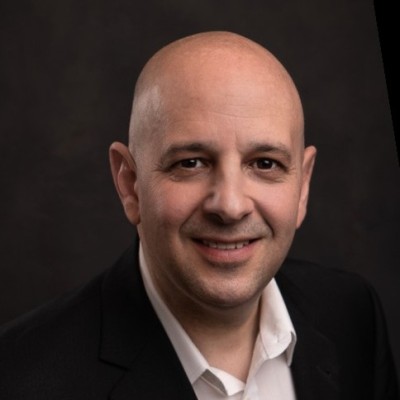
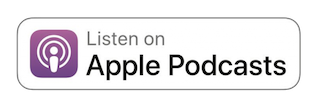
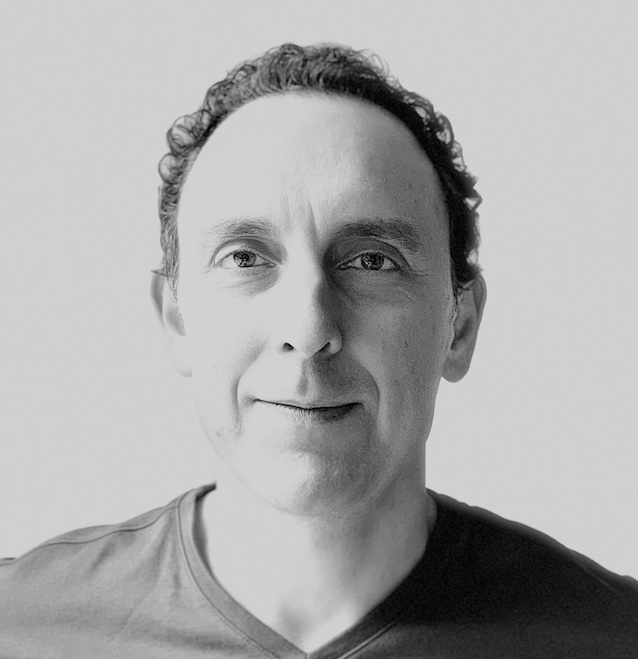


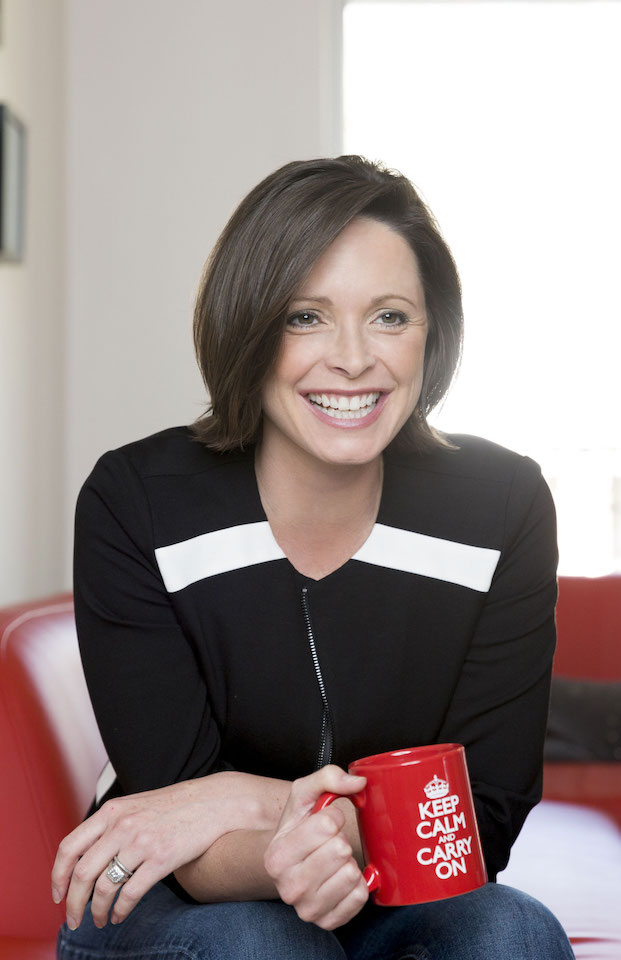
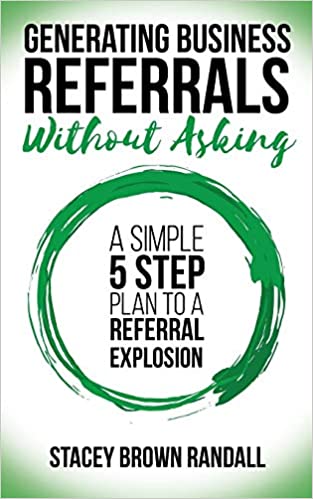



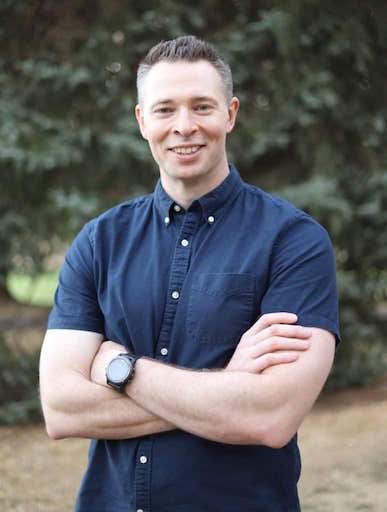





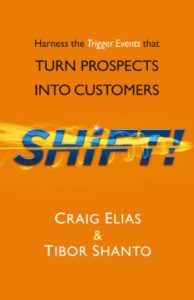
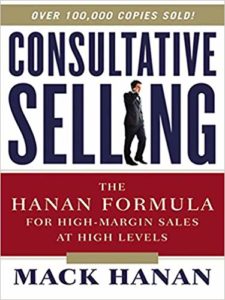
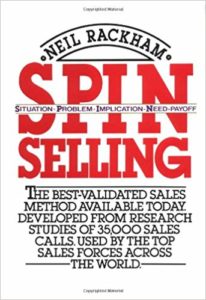
 Vanessa Van Edwards is lead investigator at the
Vanessa Van Edwards is lead investigator at the 